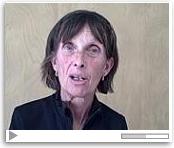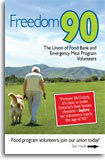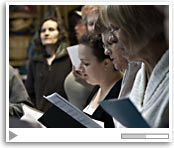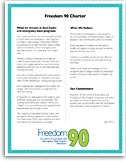


Controlling the debate - Part 2
December 15, 2015
Have good arguments ... be persistent ... make sure your voice gets heard
Judy Haiven, a professor at St. Mary's University, "cringed" last January when she heard Michael Enright's opinion piece on the benefit of giving socks to the homeless. So she wrote an opinion piece of her own, in which she says:
"How nice of us! We give the poor our castoff and mostly boring tinned food because they don’t deserve to eat the nice food we eat (except for the special Christmas dinners at the shelters or church basements). And we give the poor socks, (Chinese-made in factories that pay workers pennies an hour) because socks are essential cushions and feetwarmers for the feet of poor people who must trudge kilometres, from the shelter breakfast to the drop-in centre to the church basement, in search of three meals each day."
"Somehow we in the middle class know what’s right for the poor – banged up tins and instant noodle soup packets or socks to help them live on the streets or shelters in winter."
"But the middle class seldom calls for an increase in welfare, a guaranteed annual income or permanent housing for the homeless or the poor."
And she's back at it this December, saying people want to work, to make a contribution to society:
"They want to not be humiliated, they want to hold their heads up, they want to think they're making a contribution for themselves and their families — and we don't give them a chance," Haiven said.
"The only way in our society that we can do that is by giving people a guaranteed annual income if they can't work. And a lot of people on assistance can't work because of physical or mental problems that they have, or maybe they have children and they can't be out in the workforce for as many hours as required."
If you have a voice, it's time for you to speak out.




